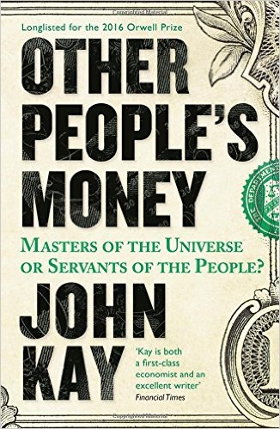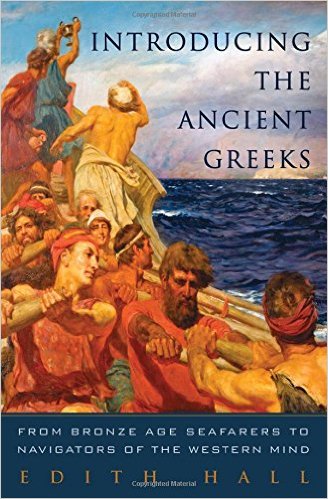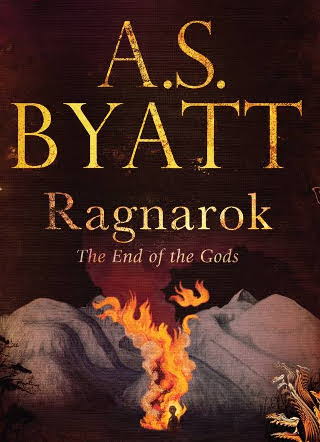The BP Portrait Award 2016 is on at the National Portrait Gallery. Always worthwhile, and always very humbling seeing how much good work there is around. I've been twice now.

Below are two of my favourite paintings, but there were five or six others.
Left : Francesca by Daniele Vezzani (here)
Right : Pearl in the Morning, Ready for School by Samantha Fellows (here)


All the paintings are on the NPG website.

The future of work has been in the news off and on for a while, especially as AI and robotics start to make more of an impact. Lorry drivers are one profession said to be threatened by self-driving vehicles, but many white-collar employees are also at serious risk. For instance, computers can do very efficient legal discovery (and a lot more cheaply). We might start seeing higher unemployment, more underemployment, lower wages and the need to work much longer. Tornadoes weaving a path of destruction through the workplace?
A couple of years ago, The Economist magazine talked of :
Just as robots became ever better at various manual tasks over the past century—and were therefore able to replace human labour in a growing array of jobs, beginning with the most routine—computer control systems are able to handle ever more of the work done by human administrative workers. Jobs from truck driver to legal aid to medical diagnostician to customer service technician will soon be threatened by machines. Starting with the most routine tasks.
The article above starts off quoting David Graeber on his labelling many jobs as "bullshit jobs" (Strike Magazine), massive swathes usually administrative jobs in areas like health administration, human resources and public relations. A very different type of economy from the "classic" one of people designing and making things. I might argue that this has really always been the case however, at least since the Industrial Revolution.
David Graeber (author of Debt: The First 5000 Years and LSE Professor) :
While corporations may engage in ruthless downsizing, the layoffs and speed-ups invariably fall on that class of people who are actually making, moving, fixing and maintaining things; through some strange alchemy no one can quite explain, the number of salaried paper-pushers ultimately seems to expand, and more and more employees find themselves, not unlike Soviet workers actually, working 40 or even 50 hour weeks on paper, but effectively working 15 hours just as Keynes predicted, since the rest of their time is spent organising or attending motivational seminars, updating their facebook profiles or downloading TV box-sets.
Maybe the French have a word for this :
I was at the V&A on Sunday looking at some ceramics and glassware. The sixth floor was almost empty, apart from me and three or four other people (later). But there are still guards around, all day, every day. Lots of interesting things to look at and read, but the job seems to be very very dull.
Some glass ornaments and sculptures were extremely striking :

Above: Deep Blue and Bronze Persian Set by Dale Chihuly, 1999.
From the museum label :
Originally reminiscent of the tiny core-formed bottles of ancient Egypt and Persia, the 'Persians'
series was begun on 1985. Since then Chihuly has developed the series into a range of different
shapes , the outer ones often of enormous size.

From the New York Times :
Standing in front of the David was, by far, the most powerful experience I had ever had with a work of art. The statue is gigantic: 17 feet tall, three times the size of an actual man, the height of a mature giraffe — another fact that no one had ever told me. I had always assumed, based on the images, that the David was life-size. To find otherwise seemed like a category error, like arriving at the Taj Mahal to discover that it is actually the size of a walnut. There was an existential snap in my brain, a sudden adjustment of the relative values and proportions of every other object in the world, including me.
I know the feeling. It is an absolutely stunning work and many years ago I had the same reaction on my first view of the statue: amazement that it was so big.
The article describes some serious problems with the giant statue though, weak ankles that may make it susceptible to collapse in some circumstances. What a disaster that would be, even though we have a full size cast replica at the Victoria and Albert Museum (as does Florence itself of course).
Maybe things are not as bad as they can seem, although the museum director does worry about earthquakes. But as the outgoing director says :
We have known about these cracks for more than 100 years, he pointed out, and they aren’t getting any worse. The David is now perfectly upright, and he is one of the most closely monitored artworks in the world.
Let's hope the Italian's sort out the "antiseismic base" soon though. There is a good page on Michelangelo’s David at the Academia.org site.

Other People's Money
by John Kay
In Edinburgh, Kay remembers the old days as a schoolboy in the 1960's when a career at "the Bank" or "the Royal Bank" was an aspiration for boys whose grades were not good enough for admission to a good university. As he details in his recent book, things are very different now, with a career in Finance attracting the best and the brightest. The world has changed, much for the worse. These things might be linked.
Kay's an excellent writer and every page has something worthwhile on it, and quotable. He's scathing about the way "financialisation" has taken over the financial industry. A tremendous amount of money is now floating around the system and a equally massive number has inflated the pay packet of large numbers employees in the finance industry. This does not include the average retail bank employee though: closer to shop assistants now. Lots of money to be made "trading" though, but, as Kay asks, what is all the trading for?
There seems to be a huge disconnect now between the needs of the real economy and the financial system today; a system that trades mostly with itself and, seemingly, mostly for its own benefit. And the bottom line is that all this is with other people's money. Prudence is weak or non-existent and abuse easy, widespread and unpunished. After all, fines levied are paid with other people's money.
The title of this post, I'll be gone, you'll be gone is another of the sticks he uses. Like much of politics today, there is a mostly short-term outlook taken and people know that the results of their activities will be felt long after they've left the industry, usually amply rewarded. I'll be gone, you'll be gone.
"We are investment bankers. We don't care what happens in five years."
Vincent Dahinden, head of global structured products, Royal Bank of Scotland in
Institutional Investor, 12 February 2004. Quoted in Ian Fraser, 2014. Shredded. Inside RBS, the Bank that
broke Britain p 222. Royal Bank of Scotland was bailed out by the UK taxpayer four years, eight months later.
Depressingly, Kay is pessimistic and thinks that we missed the opportunity to fix things. It was right to backstop the system and prevent a collapse in 2008 but :
They might have used the control of the finance sector they achieved in the aftermath of the crisis to restructure the industry. But they did not, and that makes it certain that they will get another chance - perhaps to make similar mistakes again.
Great book, well written. I wish there were more people like Kay around, and I hope our politicians, financial regulators and economists listen. As The Economist says :
Above all, the finance sector should be judged on the same basis as other industries; if an activity is unprofitable without taxpayer support, it should not occur. “Our willingness to accept uncritically the proposition that finance has a unique status has done much damage,” the author wisely says. Let us hope those in authority will listen.

The Ancient Greeks
By Edith Hall
Edith Hall is a professor of classics at Kings College in London and has appeared on television and radio, including many episodes of In Our Time with Melvyn Bragg. So, having seen and heard her, I knew she had expertise and also a skill in communicating it.
In her recent book, she introduces us to the ancient greeks and their world using ten characteristics she identifies. These are such things as curiosity, humour, a distrust of authority and a love of excellence. The book is up to date on new research and discoveries in recent years and includes a number of observations and facts that were new to me. There is no shortage of writing on this particular subject, and I've read quite a few, but this book is a worthy addition and very well written. Not over-long, but still erudite, and highly recommended.

Ragnarok
By A. S. Byatt
This is a thin book, but not slight. The "thin child in war time" is obviously Byatt herself but it is not really autobiographical, or really a novel.
The child finds pleasure and escape reading Asgard and the Gods by Wilhelm Wägner, a book published in 1880 that retold "tales and traditions of our northern ancestors". The Norse Gods. She prefers these darker, less optimistic and stranger tales to those she is told at church.
One of things that suffuses these tales in the inexorable slide towards the final terrible battle, the judgement and demise of the Asgardians. They know this and accept it.
After a long time, the fire too died. All there was was a flat surface of black liquid glinting in the small pale points of light that still came through the starholes. A few gold chessmen floated and bobbed on the dark ripples.
The Norse myths do not appear to have had any time for a resurrection or an afterlife, at least after the final world destroying, and god destroying battle. The girl finds this oddly satisfying. I think Byatt gets the sombre feeling quite right in her telling of these old myths and, like the "thin child", I found that very fitting as well.



